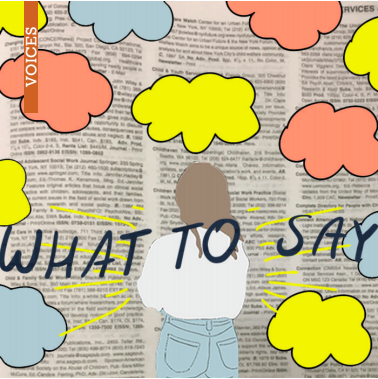Social media has forever changed the nature of social justice activism. Internet activism has taken off, allowing people from across the world to share their opinions in a second or promote a rally that may have previously gone unnoticed. Movements don’t necessarily have individual leaders like they did during the Civil Rights era or the initial waves of feminism. Instead, there are spaces that are ‘leaderfull’–movements that run through a conglomeration of people who share disparate opinions, but must work together for a common goal.
This new generation of activism has revolutionized how we view social justice. More voices are being heard and there is a greater sense of collaboration within social justice spaces. Terms such as ‘intersectionality’–recognizing how different social identities connect to create a unique experience and position of power or privilege compared to someone with only one of those same identities–or the ‘D7+’–a term referring but not limited to the social identities of race, social class, religion, sexual orientation, gender, ability and age–are becoming more and more common.
On one hand, this is an excellent development. These terms allow us to talk efficiently about identities. However, the growing list of vocabulary words that accompanies modern social justice movements can also contribute to their inaccessibility–“access” is used here to describe how easily a theme or word can be conceptualized in the context of one’s pre-existing knowledge or experience. An example of this outside of the realm of social justice could be a person bringing up the writing of Kant without describing the specific points of his work or the background.
There are many individuals who are interested in social justice, but do not have the language or the education to effectively engage in activist spaces. They may not know how to properly refer to LGBTQ individuals, speak on racial identities, or discuss disability.
A common but unfortunate response to these individuals is shaming. For any number of reasons, these people have not learned how to properly utilize the language of social justice spaces, and they suffer as a result of their lack of familiarity with the space. What has formed instead of healthy discussion is a “call-out culture.” Instead of bringing people back into discussion and challenging their beliefs, we roast them on social media or ostracize them from our social groups.
While challenging others is a key to growth, it is critical to do so without alienating them or stripping away their capacity to engage in self-reflection. Self-reflection can be helpful in the process of becoming engaged in topics or spaces that at first seem daunting or uncomfortable. Often, we are not given the chance to reflect. Why do we say what we say the way we say it? Why do we think about things the way we do? How do our words and actions affect other people? How can someone reflect and reevaluate their beliefs when they’re immediately shut down or told they’re wrong? Navigating this line between an irrevocable exclusion and an invitation can be difficult. Here, a call-out can be a shutdown, a call-in can be what is needed to grow. A call-in can look like a lot of things: nodding and sharing a contrary experience, giving an appropriate word to use instead of a derogatory term, or sharing a resource or a definition.
In between “woke” and “ignorant,” there’s an infinite amount of experiences and definitions. Most importantly, there is infinite room for growth. No matter your starting point, growth is always possible, and with the right support and access to resources, it is inevitable.
For people involved in social justice activism, acceptance is hard when you see hate-filled people who don’t seem to want to grow in the first place. For people not in the social justice community, accepting growth is hard to do when you feel alienated or like you don’t have the tools to get started.
It’s hard to have hope in others’ capacity to grow and sometimes even harder to have hope in your own capacity to do so. It’s easier to be critical, to acknowledge something is wrong or unproductive, or to just recognize ignorance. Instead, it is critical to find ways to remain hopeful in our pursuit of understanding and change. Keeping in mind that that social justice is, in its essence, inclusive. Just because someone doesn’t know the words doesn’t mean they cant express feelings and experiences, and just because one may feel challenged in a space doesn’t mean they can’t use it to grow.







